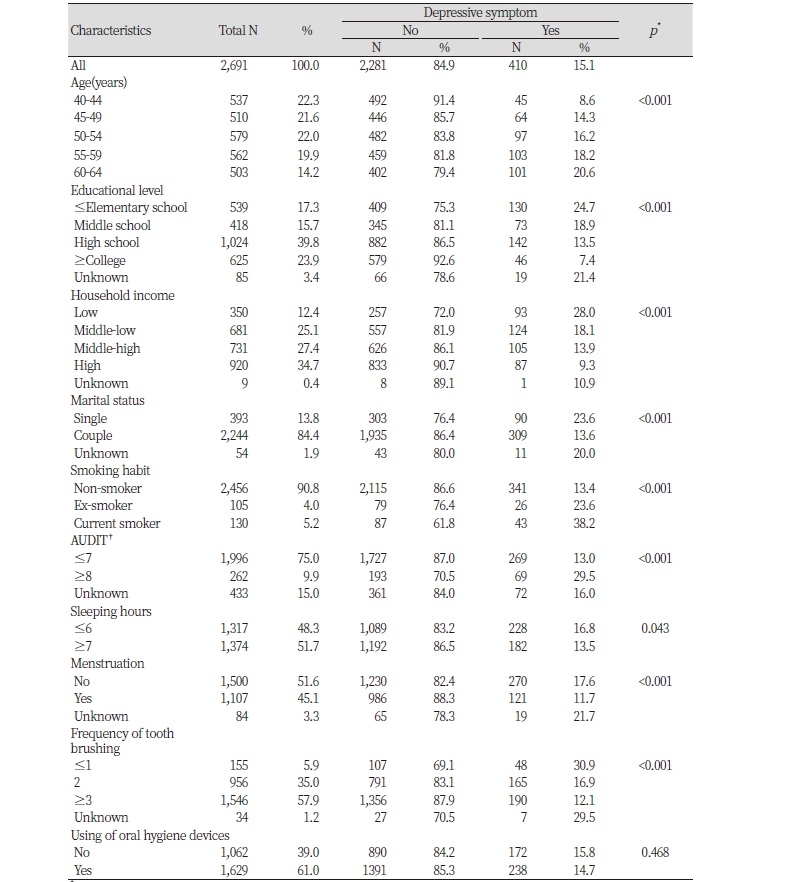Abstract
Objectives: The aim of this study was to evaluate the relationship between depressive symptoms and oral health status in Korean middle-aged women. Methods: We analyzed data from the sixth Korea National Health and Nutrition Examination Survey (KNHANES Ⅵ). The final sample consisted of 2,691 adults aged 40–64 years. The Chi-squared test was used to assess the rate of depressive symptoms, oral health status, and relationship between oral health status and depressive symptoms. Moreover, logistic regression analysis was used to examine the association between depressive symptoms and oral health status. Data were analyzed using SPSS 20.0 program. Results: Overall, 15.1% of subjects experienced depressive symptoms. The rate of depressive symptoms in self-aware oral health, toothache, and mastication problem groups were 19.6%, 19.9%, and 25.3%, respectively. Compared to other groups, the likelihood (odds ratio) of having depressive symptoms was 1.47 (95% confidence interval [CI] : 1.16-1.88), 1.58 (95% CI: 1.22-2.04), and 1.73 (95% CI: 1.32-2.28) higher in self-aware bad oral health, toothache, and mastication problem groups, respectively. Conclusions: We found an association between depressive symptoms and oral health status. Thus, oral health status should be evaluated as a potential risk factor for depressive symptoms.
Figures & Tables



